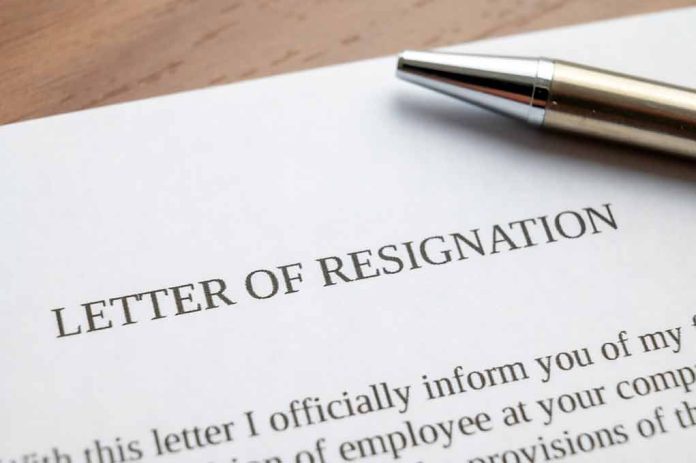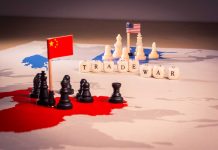
As Canada faces mounting economic challenges, Prime Minister Justin Trudeau’s leadership is under intense scrutiny following Chrystia Freeland’s resignation as Finance Minister.
At a Glance
- Dominic LeBlanc replaces Chrystia Freeland as Finance Minister.
- Freeland resigned due to disagreements over fiscal policies.
- Tensions escalate amid Donald Trump’s tariff threats.
- Calls for Trudeau’s resignation gain momentum across the political spectrum.
Trudeau Under Pressure
Prime Minister Justin Trudeau appointed Dominic LeBlanc as the new Finance Minister after Chrystia Freeland resigned, citing disagreements over fiscal policies. Freeland resigned on a crucial day when she was expected to update Parliament on the nation’s finances. Her departure has intensified calls from various political leaders, including NDP Leader Jagmeet Singh and Conservative Leader Pierre Poilievre, for Trudeau to step down amid internal government turmoil and rising deficits.
Tensions between Trudeau and Freeland reached a high point following the election of Donald Trump and his threatening tariffs. This led to Freeland’s criticism of Trudeau’s handling of fiscal policies and U.S. relations. Her departure has spurred on increased speculation of potential elections, as leaders like Bloc Québécois’s Yves-François Blanchet suggest a need for new leadership to address these challenges.
Today, I am calling on Justin Trudeau to resign.
Liberals are fighting themselves – when Canadians need a Prime Minister who will fight for them. pic.twitter.com/1zebsMovqh
— Jagmeet Singh (@theJagmeetSingh) December 16, 2024
Growing Opposition
Freeland’s resignation letter emphasized her disagreements with Trudeau over the government’s focus, and her departure is part of a broader issue with significant financial implications. As the national deficit stands at $61.9 billion, critics argue that decisive action is needed to stabilize the government. The opposition’s calls for change reflect a growing sentiment that the current leadership may no longer be viable amid these economic challenges.
“For the past number of weeks, you and I have found ourselves at odds about the best path forward for Canada.” – Chrystia Freeland
In a special Liberal caucus meeting, numerous MPs expressed their desire for new leadership, suggesting that nearly 40% of the party supports a move to have Trudeau resign. Freeland’s resignation coincided with the release of a fall economic statement that highlighted a $61.9 billion deficit, raising further concerns about Canada’s fiscal management.
🚨BREAKING: Trudeau may be forced to officially resign in the next few days.
There's significant buzz on platforms like X and other social media platforms, such as Facebook about the possibility of Canadian Prime Minister Justin Trudeau resigning, coupled with reports and… pic.twitter.com/NRoTSHKrox
— Human Rights Platform (@Humanrights256) December 17, 2024
Political Ramifications
The Trudeau government faces a credibility crisis with declining approval ratings and difficulty maintaining party unity. Anthony Housefather’s call for Trudeau’s resignation underscores the need for a leadership shakeup. With speculation about a cabinet shuffle and the possibility of an unexpected election, Trudeau and his party must address these internal pressures to maintain political stability.
“We have a choice right now. We either make the change, or we don’t. I believe the prime minister has passed that shelf life. We need to have a different leader with a different vision if we are to be viable in the next election.” – Anthony Housefather
As Trudeau addresses internal calls for his resignation, the country waits to see if his administration can resolve the conflicts that have led to this critical moment. The Liberal Party must reconcile these differences and focus on addressing Canada’s pressing issues, both domestically and internationally, to regain public trust and affirm its capability to govern effectively.
Sources
2. Canada finance minister resigns as PM Trudeau grapples with new Trump term














